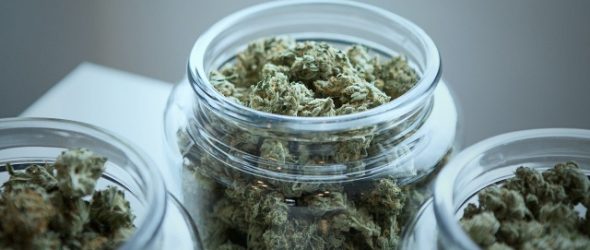 https://cannabisexaminers.com/wp-content/uploads/2020/05/cannabis-cravings-differ-between-the-sexes-335080.jpg
https://cannabisexaminers.com/wp-content/uploads/2020/05/cannabis-cravings-differ-between-the-sexes-335080.jpg
Women who regularly consume cannabis experience more intense cravings for the drug than their male counterparts, a study has found.
Published in Drug and Alcohol Dependence, the study suggests this difference may be linked to estrogen levels, but this can’t be confirmed until further research is carried out.
A close crave
To reach this conclusion, the researchers from the Center for Brain-Health, University of Texas at Dallas, first recruited 112 participants (54 female, 58 male) who had consumed cannabis at least 5000 times.
In the study, these “heavy cannabis users” were given a piece of cannabis equipment to hold and asked to rate their urge to use marijuana on a scale of 1 (no urge) to 10 (high urge). On average, the female participants ranked their cravings at 5.5, while the male participants’ average was 4.6.
When the female cannabis consumers were categorized by their (self-reported) menstrual cycle phase, the researchers found that those in the follicular phase (when estrogen levels increase) showed a significantly higher craving response compared to male users. But as previous studies have found no correlation between cannabis use and menstrual cycle phases, more research will be needed to clarify the reason behind this difference in cravings.
“It is important to emphasize that this finding is preliminary and it is unclear whether this increase may have contributed to the sex-related differences,” the researchers wrote in their study.
During the experiment, changes in the participants’ brains were also measured using a functional magnetic resonance imaging (fMRI) machine, but no sex-related differences were recorded.
No woman, no high
While cannabis consumption has historically been higher in men,data shows that more women are increasingly taking up the drug in regions with legal recreational access.
As many of the scientific studies into marijuana’s effects on the body have been conducted on male participants, some researchers are concerned that there is a lack of clarity on how women respond to the drug.
“The greatest contribution of this study was to understand the differences in the effects of cannabis use in men and women on brain activity and subjective response,” Dr Sandhya Prashad, the study’s lead author,said in a statement.
“This research has moved the needle forward in accounting for these individual differences in the development and administration of interventions to help improve clinical outcomes for everyone, particularly women.”
Speaking to Analytical Cannabis last June, Ian Hamilton, a senior lecturer in addiction at the University of York – who wasn’t involved in the University of Texas at Dallas study – also stressed the importance of including more female participants in future cannabis studies.
“I’m concerned why researchers continue to overly focus on what happens to men when they use cannabis, given that millions of women around the world use it,” he said.
“There are far more men in powerful positions in academia than there are women,” he added. “And I think that’s probably contributed to this bias, which I don’t think is unique to drugs and cannabis. I think it’s probably the case across all areas of health.”
Reference: Prashad, S., Hammonds, R. P., Wiese, A. L., Milligan, A. L., & Filbey, F. M. (2020). Sex-related differences in subjective, but not neural, cue-elicited craving response in heavy cannabis users. Drug and Alcohol Dependence, 209, 107931. https://doi.org/10.1016/j.drugalcdep.2020.107931

